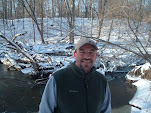“The government of the United States is not, in any sense, founded on the Christian religion.”― George Washington and John Adams.
Both of the above founding fathers, in the Treaty of Tripoli signed in 1787, shared this belief about where this country, the young United States of America, stood in reflecting what it stood for on the world stage. What does that quote mean to us today when we face so many issues that change long-held beliefs and the right of all citizens to be protected by the concept of social justice for all in our country?
Around 1787 History Lesson: The United States was battling the unsettling and dangerous threat of the Barbary Pirates. These pirates, or privateers as they were also known, came from the Barbary States of Algiers, Tunis, Tripoli, and other small states, but were under the sovereignty of the Ottoman Empire. Their predation of American shipping interests extended throughout the Mediterranean, south along the West African seaboard, into South American waters, and to Iceland in the North Atlantic. The treaty was designed to address ending piracy on American shipping on the high seas, and this treaty passed unanimously in the Senate (only the third such unanimous vote of the first 339 recorded votes in the early Senate, and I am only guessing that those senators read the whole treaty before voting on it). In fact, official records show that the entire treaty was read aloud on the Senate floor, and copies were printed for each and every Senator.
What do you think the founders meant by this? I don't think they were just pulling a fast one. They came to the colonies to escape religious persecution, and created a republic. Yes a republic, which is a form of government in which power resides in elected individuals representing the citizen body and government leaders exercise power according to the rule of law. This republic was created so that it protected religion while also acknowledging that the government would remain secular, protecting each and every belief equally (each and every citizen) and not endorse any one religion over another. This also includes the freedom of choice of whether or not to choose a religion at all.
In fact, it was President Thomas Jefferson who later wrote (to a Baptist church group in 1802), "The First Amendment has erected as a wall of separation between Church and State."
And to handle this concept fairly, not everyone agreed with this perspective. James McHenry, the Secretary of War, protested the language of the treaty. "[He said] at the time, [The Senate] ought never to have ratified the treaty alluded to, with the declaration that 'the government of the United States, is not, in any sense, founded on the Christian religion.'What else is it founded on? This act always appeared to me like trampling upon the cross. I do not recollect that Barlow (Joel Barlow was the United States consul-general to the Barbary States who handled the translation of the treaty from Arabic to English) was even reprimanded for this outrage upon the government and religion."
I for one feel safe knowing the historical perspectives and having the opportunity to question motives in their entirety whenever our government gets into the process of deciding what we should believe. But we are blessed by the gift of having the choice of what to believe, and that the constitution gives us an opportunity to entirely respect the beliefs of others. Entirely! This does not mean to condone behavior that is hurtful and mean and destructive to the lives of any United States citizen. We are all created equal and need equal treatment in our country. Apply the golden rule. Anyone can apply that rule, it is not exclusive to any group. You don't even need a religion.
Please revisit and read what the founders of this great nation wrote, don't take my word or what the spin-doctors spin. Before believing anything you hear or read, try critically looking at it, and then decide. We all deserve to give ourselves that gift.






